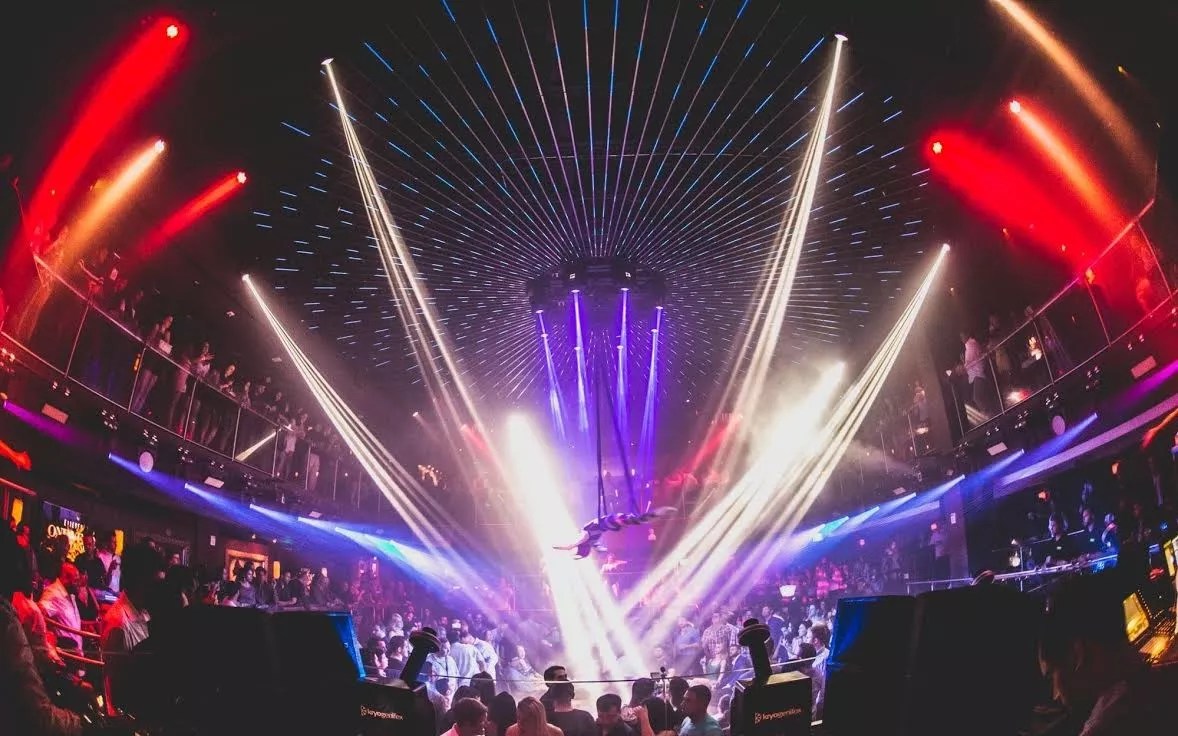
Photo courtesy of E11even

Audio By Carbonatix
Update: On September 10, Halsey Beshears, Florida’s Secretary of Department of Business & Professional Regulation, announced that bars can reopen statewide at 50 percent capacity, as long as they practice social distancing and all other statewide COVID-19 guidelines. Miami-Dade bars, however, will remain closed. Miami-Dade Mayor Carlos A. Gimenez tweeted the news saying, “Even though the State of Florida is planning to allow bars to open again, Miami Dade County’s bars will remain closed by emergency order until further notice. Our County continues to monitor this evolving situation as it works to tamp down COVID-19 cases.” Palm Beach and Broward County bars will also remain closed at this time.
It has been a while since Miami-Dade residents got buzzed at their favorite neighborhood bar or danced up against a stranger at a club.
The recent decrease in positive COVID-19 cases and hospitalizations has led Miami-Dade County Mayor Carlos A. Giménez to loosen some pandemic restrictions, allowing indoor dining at restaurants and adding an hour to the onset of the nightly curfew some people didn’t know we had. But a return to boozy, blurry nights isn’t on the table.
During a virtual press conference yesterday, Giménez said bars and nightclubs in the county likely won’t reopen until there’s an effective vaccine available for the novel coronavirus. The Miami Herald reports that the mayor said the same thing during a Tuesday interview on radio station WIOD-AM (610).
“Bars and nightclubs, the activities there are not conducive to maintaining a six-foot separation,” Giménez reportedly said. “At a bar, you’re not gonna maintain a six-foot separation. At a nightclub, definitely not gonna maintain a six-foot separation. Those venues are really difficult. I don’t see us opening bars and nightclubs here for the foreseeable future.”
In late June, Halsey Beshears, secretary of the Florida Department of Business & Professional Regulation, issued a statewide last call of sorts, prohibiting on-site alcohol consumption at bars in response to a surge in COVID-19 cases across the state.
Miami-Dade County earmarked federal CARES Act money for employees of independently owned restaurants, bars, and caterers, but nightclubs aren’t eligible for those funds.
Dr. Aileen Marty, a public-health expert and infectious-diseases professor at Florida International University’s Herbert Wertheim College of Medicine, said during yesterday’s press conference that data from other nations shows that bars and clubs “have been sites of major, major clusters for COVID-19.”
Countries like South Korea, France, and Italy have reported clusters, which typically start the same way: One person tests positive for COVID-19 days after visiting a bar or nightclub and, through contact tracing, is linked to scores of others who become infected.
Sixteen friends celebrating a birthday at a crowded Jacksonville bar in mid-June – when watering holes in Florida had reopened everywhere besides Miami-Dade, Broward, and Palm Beach counties – tested positive for COVID-19, as did seven employees who were working on the day of the celebration.
Adam Gersten, owner of the Wynwood bar Gramps, closed up shop in March, reopened in April, and closed again in June. He says that although Gramps would operate as a restaurant, he’s still not keen on reopening – for reasons of safety and financial viability.
“We closed by choice, and we’ll open by choice,” and only if the business can sustain itself even with limited capacity and other restrictions, Gersten says. That said, he does look forward to the day he can welcome customers again.
Becks Lange, an event producer who organizes the annual music festival Rakastella and label parties for Miami Music Week, says the mayor’s announcement didn’t come as a surprise. “Unfortunately, our chances were shot when back in May through July, illegal parties were happening in our faces and even being promoted,” Lange writes in an email to New Times.
Lange adds that she’s not sure Miami is ready to respect rules even if nightlife venues were allowed to reopen.
“What we do need is to unite as a scene once and for all and start speaking out to our local governments and coming up with safe plans of reopening to present to the authorities just like restaurants have done, just like Europe has done,” she writes.
While bars and nightclubs might experience issues with social distancing and mask wearing, in Giménez’s Miami-Dade, strip clubs are another matter.
After the mayor ordered widespread business closures in March, adult-entertainment venues submitted safety plans and commenced reopening in June – only to be ordered to close again amid July’s surge in COVID cases.
Although the mayor didn’t provide a reopening timeframe and said he needed to have discussions with medical experts, he said strip clubs might open sooner than bars and clubs owing to differences in business operations.
Miami-Dade Deputy Mayor Jennifer Moon elaborated, explaining that customers at strip clubs must be seated at tables and performers are distanced from the clientele.
“That’s not the same as what happens at a nightclub,” Moon said.
At the press conference, Giménez also announced that starting Monday, September 14, the nightly countywide curfew will commence one hour later, moving from 10 p.m. to 11 p.m. Gimenez said open-air attractions like ZooMiami and Jungle Island will reopen Monday, and some team sports would resume at county parks. (Fans attending the University of Miami’s home opener against Alabama-Birmingham tonight will be exempt as long as they show their ticket if they get pulled over.)
Giménez said Dr. Anthony Fauci and Dr. Deborah Birx, infectious-disease experts and key members of the White House Coronavirus Task Force, recommended waiting until Monday to ease some of these restrictions in order to mark a full two weeks since the mayor approved indoor dining at restaurants. The mayor added that before the county eases restrictions any further, staff and medical experts will need to analyze data two weeks after the Labor Day weekend, searching for potential spikes in COVID cases and hospitalizations, which are typically seen after holidays.